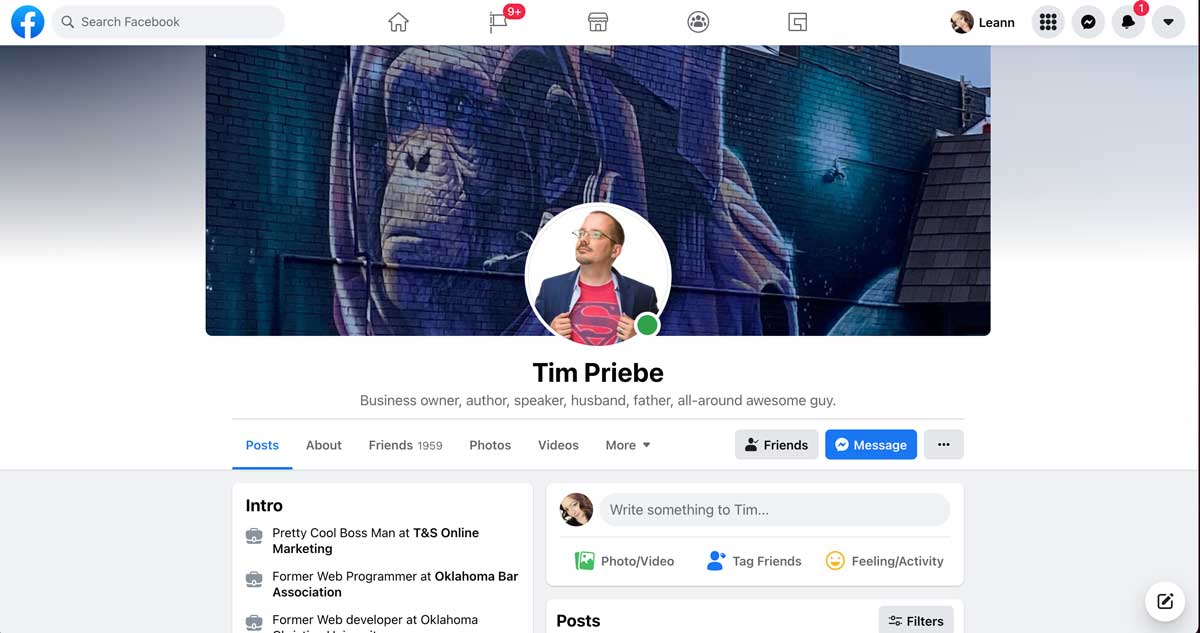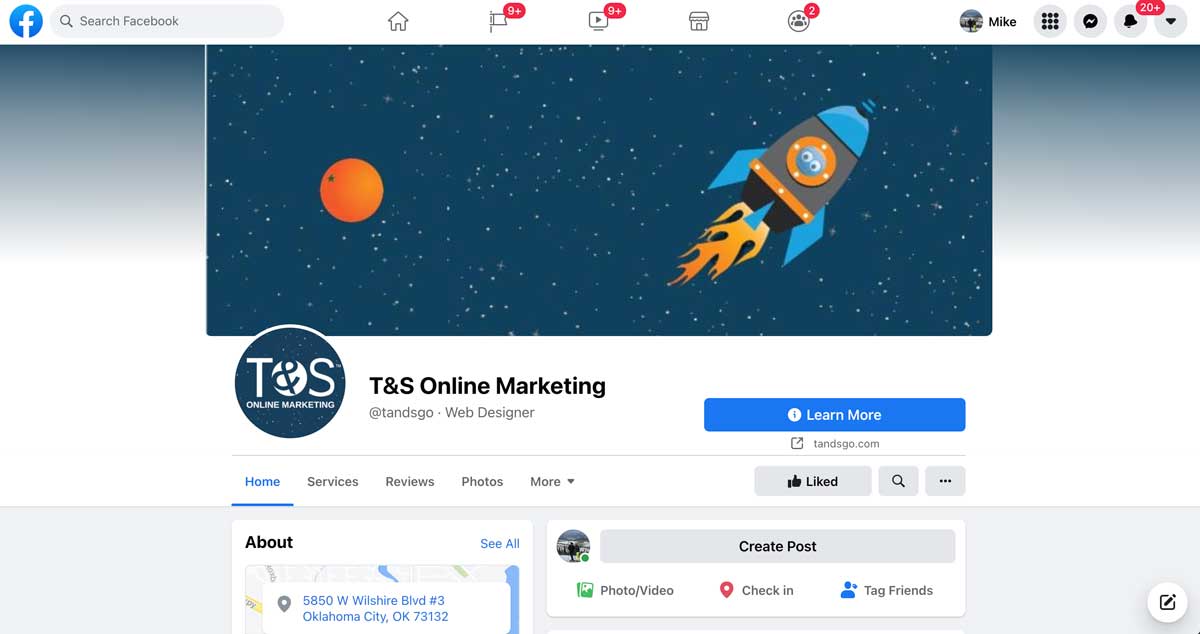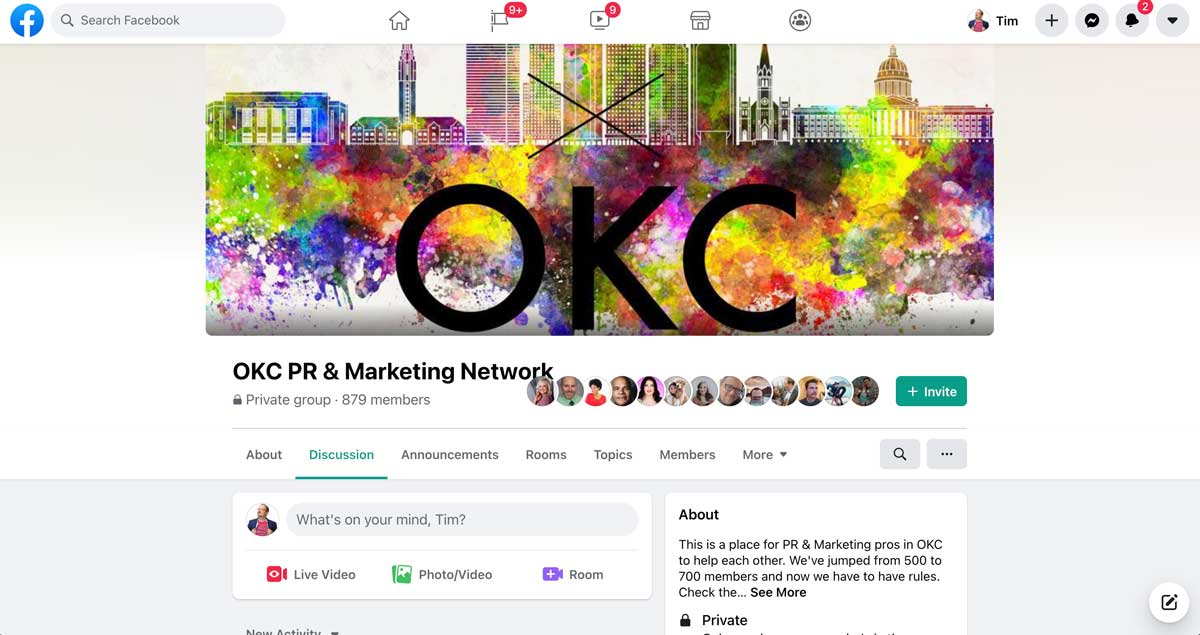Businesses and nonprofits alike can make use of Facebook for digital marketing purposes, whether it’s to increase brand awareness—that’s letting people know you exist—demonstrating expertise and helpfulness, or generating leads.
However, often I’m asked whether an individual or organization should be using a Page, profile, or group.
The short answer? It depends.
Let’s look at the difference between a Facebook Page, profile, and group. We’ll dive briefly into the history, then talk about how you can tell which one you should be using.
A brief history of Facebook
Don’t worry. I’m not going to regurgitate the 2010 movie The Social Network. Instead, I want to touch briefly on why there is often confusion about which of the three an organization should be using on Facebook.
For the first three years of Facebook, starting in 2004, the only option was a personal account which came with a profile that others could view. There was no official, sanctioned way for an organization to have a presence on Facebook.
Of course, that didn’t stop people. Even though Facebook’s terms of service say an account is for a person, and each person can only have one account, business owners and marketers often made a second account for their business.
In 2007, Facebook launched Pages for both brands—often companies and nonprofits—and celebrities to have an official presence on Facebook. Facebook offered to migrate your company’s profile to a Page if that’s how you were using it. However, many people chose to stick to a profile for their company. Eventually, Facebook began cracking down on profiles that didn’t represent a person, shutting them down whenever they found them.
Three years after that, in 2010, Facebook launched groups. Now a business or nonprofit could form their own group where members of the group could post and have discussions. As companies jumped to form groups, this muddied the waters a bit.
Facebook profiles
When you create an account on Facebook, you automatically get a profile. A profile is where you share information about yourself. Photos, videos, and other posts you’ve made will all show up on your profile.
Facebook’s terms of service say each person can only have one account, and you have to use the same name you use “in everyday life.” They also say that posts from your account should be for personal purposes.

Facebook Pages
A Facebook Page is created and managed by one or more people that have a Facebook profile. In Facebook’s documentation, they say that Pages are for “artists, public figures, businesses, brands, organizations, and nonprofits.”
Facebook used to call people who connected with your Page your fans, and that terminology is sometimes still used in articles. Now, people can like your Page, or they can follow your Page. If they like it, they’re automatically following it as well.

Facebook groups
Facebook groups are a type of online discussion forum where people can post, react, and comment on posts related to shared interests with other people. Pages are typically the organization sharing information and other people reacting or commenting. Groups generally have other people starting the conversations.

Should I create a Facebook profile, Page, or group?
That’s all well and good, but how do you know which one to create?
Well, if you’re going to do anything on Facebook, you’ll need an account, and that will come with a profile.
If you want a “home” on Facebook for your organization, a Page is the route to go. You can interact with customers, clients, donors, volunteers, and the community in general there. People can like your organization, and there’s no two-way relationship implied.
If privacy is an issue for any reason, you can manage a Facebook Page without anyone knowing about your profile. They won’t necessarily be able to tell who is managing the Page unless you want them to.
If you want an open forum for people to discuss your organization or a topic related to your organization, you should start a group. The group can be public or private, although anyone on Facebook can tell who the admins and moderators are.
If you need help making sure your Facebook presence matches your goals, we would be happy to talk. We help our clients by creating and often even managing their social media presence, especially Facebook. If that’s worth a conversation, we would be happy to talk!


